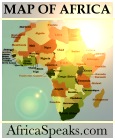Zimbabwe: Outcry Over Arms Exposes West's Hypocrisy
Posted: Friday, April 25, 2008By Caesar Zvayi
April 25, 2008
The Herald (Harare)
IN the strongest indication yet of the real motives behind the Western hullabaloo over the Chinese arms shipment to Zimbabwe, a leading American daily intrinsically linked to the United States' ruling elite has proposed that the Bush administration arm the MDC while simultaneously weakening the Government to abet illegal regime change.
The revelations were contained in an article headlined "Arm Zimbabwe's opposition", in yesterday's issue of the Wall Street Journal, a publication that reflects the thinking of the White House on financial and foreign policy issues.
The newspaper claimed the MDC-T leadership had already indicated there was a war in Zimbabwe and it was time for the US to intervene.
"The argument for arming the Zimbabwean opposition has gained new urgency in light of the news that three million rounds of ammunition, 3 500 mortars and 1 500 rocket-propelled grenades were on a Chinese ship, to be delivered to Harare, the capital of Zimbabwe ...
"Mr Mugabe's rule is a continuing crime against humanity. Lest that not serve as a wake-up call to the world, last week the MDC's secretary-general, Tendai Biti, bluntly announced: 'There is a war in Zimbabwe being waged by Mugabe's regime against the people.' America has chosen a side in this war. Perhaps it's time we help it fight back," wrote James Kirchick, an assistant editor.
Zimbabwe bought an assortment of arms from China last year and was set to take delivery last week but was prevented from doing so when South Africa's Cosatu trade union movement, working in cahoots with the MDC-T leadership, influenced South African dock workers to refuse to offload the shipment, claiming the arms would be used against MDC supporters.
MDC's Western allies jumped into the fray with British Prime Minister Gordon Brown calling on regional leaders to deny the ship permission to dock to offload its cargo.
On Monday, Justice, Legal and Parliamentary Affairs Minister Cde Patrick Chinamasa dismissed claims that the arms would be used against civilians, saying Zimbabwe had a right to arm itself to defend its sovereignty and territorial integrity while South Africa's ruling ANC president Mr Jacob Zuma has rejected calls for a weapons embargo on Zimbabwe in the wake of the election, saying: "I do not think we have reached the stage of an arms embargo."
China has since indicated that the contract to supply the arms was signed last year and had nothing to do with the elections.
Ms Jiang Yu, spokesperson in the Chinese Foreign Ministry, reiterated her country's long-held policy that economic dealings with other countries, including the sale of arms, adhered to strict non-interference in sovereign affairs.
The ship is being brought back to China, the Beijing government said yesterday.
"To my knowledge, the Chinese company has decided to bring back the boat," Ms Jiang told reporters.
She blasted Western countries - which were criticising China for selling arms to Zimbabwe - for politicising the issue.
"Some people in the US are always critical, positioning themselves as the world's policeman, but they are not popular in the world," Ms Jiang said about the US State Department's demand that China halt the shipment.
"It's pointless ... to politicise this issue," she said.
The European Union, the United States and their allies slapped an arms embargo on Zimbabwe in 2002 in addition to economic sanctions, prompting Harare to increase trade with traditional partners in the East.
China helped Zimbabwean guerillas with military andlogistical support during the Second Chimurenga as the West helped their kith and kin in the minority Smith regime.
Western media have since tried to use the arms shipment as an excuse to demonise the forthcoming Olympic Games to be hosted by China in Beijing. All along they have been berating China over standing firm against secessionists in Tibet.
Analysts have blasted Western hypocrisy over the shipment, saying China's contribution to global arms trade stood at only 2 percent and is channelled to nation-states whereas the US's 30 percent flowed mainly to sponsored wars of destabilisation throughout the developing world.
The Wall Street Journal argued that though announcing military support "for dissidents abroad ... could endanger the dissidents' cause and credibility, ... this critique might make sense in the Middle East, but it does not carry much water in Africa" where the US is considered a "most dependable ally", and where, at times, "it is faulted for not doing more".
Former British military chief Sir Charles Guthrie recently revealed that erstwhile British prime minister Tony Blair had contemplated a military invasion of Zimbabwe but was advised against it.
There have been reports, over the past few months, that the opposition has been training youths grouped into what it calls "democratic resistance committees" in various subversive tactics on isolated commercial farms.Printer friendly version
Send page by E-Mail

Previous Page | Zimbabwe Watch | Historical Views | Home
NOTICE: All articles are the copyright property of the writers. In accordance with Title 17 U.S.C., section 107, some material on this site is provided without permission from the copyright owner, only for purposes of criticism, comment, scholarship and research under the "fair use" provisions of federal copyright laws. Visit: http://www.law.cornell.edu/uscode/17/107.shtml for more details. If you wish to use copyrighted material from this site for purposes of your own that go beyond 'fair use', you must obtain permission from the copyright owner.










